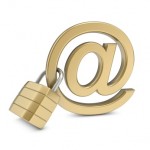Experience is simply the name we give to our mistakes. Oscar Wilde
Over the last few weeks running email management and email etiquette workshops, many of you have shared some classic faux pas. The spell checker is great for those of us who cannot spell but it can lead to some real howlers if you don’t watch what is happening. Here are a few from recent Brilliant Email management training sessions:
‘Hell’ was the email greeting instead of ‘Hello’.
The Board were asked to line up their ‘dicks’ instead of their ducks’ ahead of a board meeting.
Visitors were asked what size ‘willie’ would they like rather than ‘wellington’ boots.
The IT department apologised in advance of weekend maintenance for the ‘incontinence’ rather than ‘inconvenience’.
The moral of these email faux pas is not only to think before hitting send, but watch carefully as you spell check your email. Paying attention, pays dividends when it comes to email etiquette and preserving your image – both your own and the company’s.
Dare to share email mistakes like these either that have been sent to you or you have sent to others? Copy of ‘Brilliant Email’ for the best one.
Tags: email etiquette, email howlers, email management training, email mistakes, Oops
A couple of weeks or ago I had the pleasure and honour of running a Brilliant Email Management workshop for over one hundred NHS PAs at the NHS PAs for Excellence Wales conference. Here are their top tips for reducing email overload and using excellent email etiquette to save time.

What would you add as your favorite tip?
Tags: Brilliant Email, email etiquette, email overload, email rules, email subject line, NHS PAs for Excellence, Twenty five top tips
The recent hacking of the Adobe website is a salient reminder of the need to remain vigilant about protecting ones personal information on-line. One of the most stark factors to emerge was the number of very weak passwords used by people. Email security and internet security depends in part of having strong passwords and being vigilant about what you post on social media sites. A recent report revealed that the most common passwords were ‘123456’ (190,000+ users) and ‘123456789’ (46,000+ users).
Creating a strong password is really quite easy. Think of a meaningful sentence and then take the first letter of each word and use it to construct a password. Turn a couple of letters into capitals/symbols and add in a couple of numbers and you have a strong password. For example:
In my youth my favourite singer was Leonard Cohen. A password might be 1mYMf3Wlc!

Email security
Three other top tips to follow to improve your email security are:
1. Password protect important attachments.
2. Do not put confidential information in the body of an email, rather either convey the information verbally or in a password protected attachment. Click here for an example of what can otherwise go wrong.
3. Remember that despite your best efforts email evidence is very rarely destroyed. Someone somewhere will always have a copy.
For those managing a business (no matter what size) a key part of your email and internet security must be your Acceptable (computer) Usage Policy (AUP). It must be up-to-date to take account of changing technologies, and you must have evidence that everyone has read and accepted its conditions.
Click here to access our free on-line tool to benchmark just how robust is your current AUP. Mesmo Consultancy have helped many clients improve their email security and reduce the risk of leaking sensitive and confidential information. Call us now for a free consultation and review about how vulnerable your business is currently (+44 (0)1202 434340) .
Tags: acceptable usage policy, email security, Hacking, Mesmo Consultancy, password protection
Hurray for the Harris Academy who earlier this month decided to ban the use of all slang and text speak in an effort to improve pupil’s English language skills. A person’s lack of command and competence with proper English is rendered naked in an email as many business people have discovered. An email sent on a company address is a business record and as such represents that company’s brand and image. Whilst slang and text speak may be acceptable socially, proper business email etiquette is a pre-requisite to developing good business communications.
How would you feel as a manager and/or business owner if your employees sent emails which do not reflect properly your brand and company values? Yet that is what thousands of people do every day. They write emails in which ‘there way to resolve the challenge is…’. ‘They two will spellcheck their emails…’
Add to that the number of emails which contain text speak which many outside generation X and the Millennials see as a foreign language. Add too those emails which contain smileys and kisses and you start to see the problem. (If you are in the retail sector such emails can be enough to cost you a customer  especially if they customer if a Baby Boomer or from Generation X who are used to properly written communications). Your email is your digital dress code. Sloppy email – sloppy you and your business. Business email etiquette is different to social email etiquette. Business emails need to be need properly structured, grammatically correct and spell-checked. After all it would not be good to ask fellow board members to get their ‘dicks’ lined up!
especially if they customer if a Baby Boomer or from Generation X who are used to properly written communications). Your email is your digital dress code. Sloppy email – sloppy you and your business. Business email etiquette is different to social email etiquette. Business emails need to be need properly structured, grammatically correct and spell-checked. After all it would not be good to ask fellow board members to get their ‘dicks’ lined up!
The ban on text speak and slang by Harris Academy is welcomed, because if we don’t start to educate today’s school children we might as well wave goodbye to English as you and I know it. This would a be a great shame and could be the start of the slippery slope to lower standards of email etiquette and business communications which will mean time wasted as we try to comprehend what is being said.
Use Mesmo Consultancy’s free ‘Email Etiquette Benchmarking tool‘ to check the quality of your emails. If you find they do not support your values and brand then it’s time to take the bull by the horns and educate your workforce before you lose valuable customers. Call me to discuss how we can help you.
Meanwhile, what’s the worst business email etiquette bungle you have ever seen/made?
Tags: business email etiquette, digital dress code, email etiquette, Generation X, Harris Academy
Over the last month I have noticed myself increasingly unable to focus and do any blue sky thinking. Is it age? ‘When I am Sixty Four’ by the Beetles does have a certain resonance with me. Having just won two significant pieces of silver on the golf course, given a couple of major presentations and been recruiting for a new CEO for the Dorset Chamber of Commerce that might not seem likely. Then I checked my email and social networking behavior.

Tortoise approach to email overload
Several articles have caught my attention recently. Two related to the tortoise and hare fable. First was Schumpeter’s ‘In praise of laziness’ and second was Susie Boyt’s ‘Tortoises knows a thing or two’. Both urge us to slow down and know when it’s time to stop and take stock. We are bombarded with emails night and day and the urge to check them every few minutes has created two serious new diseases: email overload and email addiction both of which I have frequently written. Was I now falling victim to one of both of them?
The third article to make me sit up was Emma Jacobs’s ‘Help to get a good night’s sleep’. Checking your emails late at night is know to be disruptive and can result in disturbed sleep patterns. In this recent article by Emma Jacobs she again stresses the need for down time to create a quiet mind which in turns enables us to focus and feel less stressed.
Monitoring my connectivity for 48 hours I realised I had slipped into some appalling and destructive habits:
In short I was suffering from chronic email and information overload which in turn was creating attention deficit. Here is the five point action plan I prescribed myself.

Email overload medicine
In other words become a tortoise more often during the day and take time to look around, smell the roses, and let my mind wander free of clutter and other people’s actions lists. Is the anti-email overload medicine working. Its early days but my mind does seem quieter and gradually I am regaining my ability to blue sky and think outside the box. Next is to re-start practicing mindfulness and review my eating habits.
Tags: email and mindfullness, email and sleep, email overload, email overload medicine, tortoise and email overload